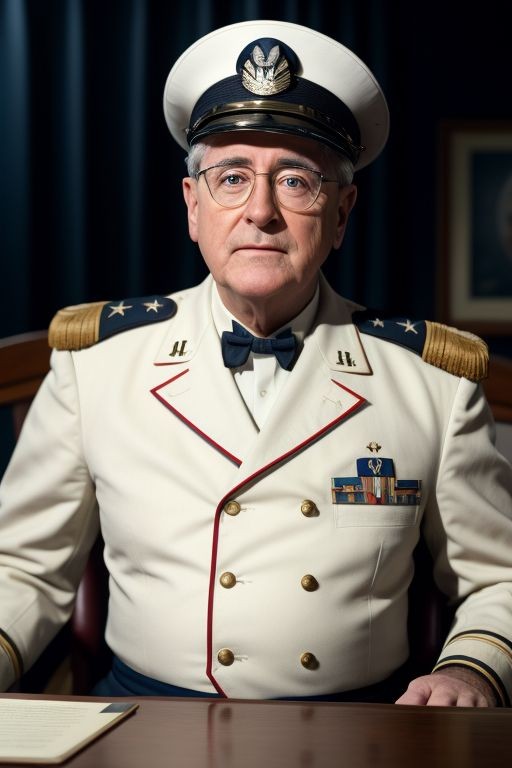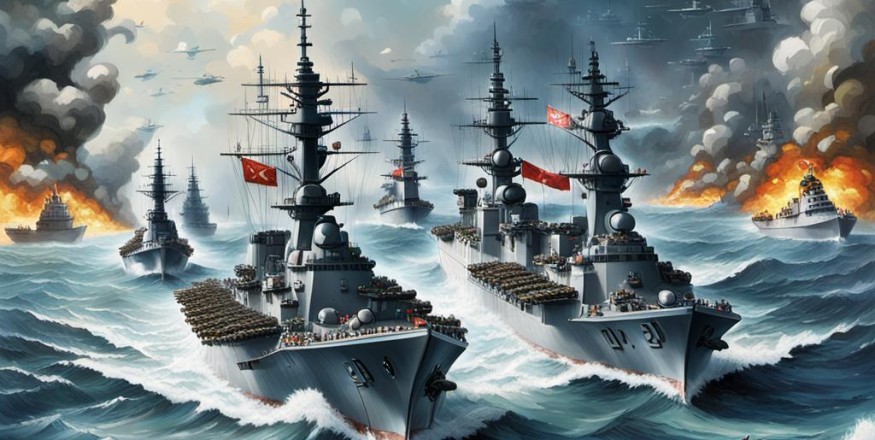 x
x
It had all begun more than a month earlier, in a little office in the Pentagon...
Admiral Binghamton chuckled to himself as he looked at the Potomac from his office window across the highway. Imagine Newton Waverly as a financial analyst! The famous Newton Waverly....well, maybe not so famous. There were few Americans who were aware of what Newton did for a living. Binghamton realized there were probably more Russians, Chinese operatives, Iranian agents, North Korean spies, and who-cared-how-many-more who knew about Waverly. And it was primarily by rumor since those who'd met Waverly head-on were mostly dead.
While Harry Locke was the smooth infiltrator who could insert himself into the enemy's most secure areas, Newton Wavery was the kind who charged in and took them apart. Regular Navy duty hadn't satisfied him, so he began a Frogman. But UDT wasn't enough either. Waverly became a SEAL and was soon a team leader. A loner, he preferred the company of others like himself. While he could put on an effective show in civilized company, the real world to Newton Waverly was the world of action. And no matter what happened on a mission, no matter how bad the losses, Waverly always came back, in a word, he was a survivor.
Binghamton knew Newton would never consider knocking---he'd just barge right in. As Binghamton looked out at the river, the first indication that Waverly had arrived was the hand on his shoulder. "Newton, it's great to see you!" He extended his hand. "I was just thinking about you."
"Hi, Bull. You're looking good, even riding that thing." He gestured at the wheelchair.
"Only a matter of time, Newton....then I'll be up and out of it." He told the others the same thing---it would just be a matter of time until he was back on his own feet. The doctors did say anything was possible, especially with someone as tough as Binghamton, but the odds weren't strongly in his favor.
None of the men close to him, like Locke and Waverly, ever brought up the subject. They were simply quite thankful that Bull Binghamton was alive. Those around him, those who knew the real Binghamton, knew the Admiral could survive without the use of his legs. Any man who could command people with the facility that Binghamton did, would never have to leave the Pentagon. The power structure might be leery of sending him back to sea again, only for his protection, but they would never let him leave the Navy.
Admiral Bull Binghamton had been the brains behind the strategy that would give the U.S. an upper hand in a potential conflict with China during the Battle of the South China Sea. That time, it was against a coalition of nations, a major Chinese effort to expand their economic and strategic influence, to acquire control of the vast oil and gas reserves and shipping lanes in the region, and to bully its neighbors into accepting its "nine-dash line" claim to nearly the entire South China Sea. It had been a sea battle on a grand scale that strategists said would never occur again---but it had, and Binghamton foresaw almost every step of the Chinese plan. It was more than just a sea battle, and it took place in locations other than the South China Sea, but few understood the covert operations that had been the turning point. The President, based on the advice of those who knew Binghamton by his less public reputation, gave the Admiral carte blanche to create the means to stop the Chinese machine.
The Chinese had intended to send their powerful South Sea Fleet submarine force from Hainan Island, through the Luzon Strait, and into the Philippine Sea to destroy shipping and challenge the freedom of navigation in the critical sea lines of communication (SLOCs) that connect Asia to the global economy, while also positioning their surface fleets to blockade Taiwan and launch amphibious operations against disputed islands in the Spratly and Paracel chains. The Americans had covertly deployed an advanced antisubmarine minefield in the South China Sea to counter Chinese aggression and restrict their naval maneuvers. Intelligence indicated that the Chinese had developed a plan to penetrate the barrier. Bull Binghamton sent Newton Waverly and his specially trained SEAL team to the Pacific island of Palau, where the Chinese had established a base of operations to neutralize the American barrier. Newton Waverly's team had been successful----they had destroyed the Chinese threat completely. Their success was devastating to the Chinese plan. The impossible had been achieved by a small group of men, though the public was never aware of it. Nor did many people know that Newton Waverly was the only member of that SEAL team to come out of it alive. It was a story that was told late at night when Naval Special Warfare Units gathered. Waverly was a legend.
Bull Binghamton also sensed there would never be a clearer threat of nuclear war than during the escalating tensions in the South China Sea. The only method he could conceive of to avoid it was to eliminate the key to China's nuclear power structure—the head of their Strategic Rocket Forces. It was a bold plan, so farfetched even in their minds that it never passed beyond Binghamton's small group. Harry Locke was sent to Hainan Island completely alone with orders to kidnap the key individual critical to China's nuclear power structure, right from under the noses of the Chinese hierarchy. He accomplished what he planned, and with the Chinese military often within an inch of stopping him, delivered the general at the last possible moment. This decisive action helped to turn the tide and alleviate the threat of nuclear blackmail.
It was Bull Binghamton who commanded the task force that sailed directly into the Chinese fleet, audaciously halting their advance through the South China Sea before they could threaten American territories. Binghamton had led the battle from the carrier USS Gerald R. Ford until she was destroyed. He then shifted his command to the Aegis cruiser USS Yorktown and stayed with her until she was blown out from under him. It was then that he had been gravely injured, dragged from the South China Sea more dead than alive, and flown back to the States in a coma.
Binghamton's close friends had gathered at the hospital to support his wife. They had come from around the world, many of them survivors of the Battle of the South China Sea, to join the vigil until the inevitable became a reality. But Bull Binghamton didn't die. He also baffled the doctors by coming out of the coma and recognizing each of the friends who had come to honor his memory. At first, he couldn't talk. Yet two months later, he was able to be best man at Harry Locke's wedding. The bride pushed him down the aisle in his wheelchair. And at the party afterward, he had toasted the new couple in his halting, slurred speech.
Throughout Binghamton's long recovery, there was another element in the Navy equally concerned about him. He was a god to those close to him and a symbol to the men in the fleet. He was what was called a "sailor's admiral," that strange breed that the men would follow anywhere, and his reputation had grown over the years. The fact that he led the Battle of the South China Sea, transferring his flag team from the sinking carrier to another ship that could direct the battle (even though it was the primary target of the Chinese fleet), did not escape the sailors' notice. Bull Binghamton ensured that ALNAV messages on Binghamton's condition were directed to the fleet until he was out of danger. He continued to serve because the command is an ethereal notion, a will on the part of the leader, and a belief among those who are led. The fact that he led from a wheelchair was overlooked. His intuitive mind, his ability to foresee danger and coordinate the strategy to remove it, was a talent to be respected and encouraged.
It was a long morning, but Newton Waverly sat in rapt attention as the Admiral spoke. Bull Binghamton had a great deal to talk about. He had been frustrated by the CIA. They spent so much time causing trouble, he said, they didn't know how to do some good digging. But Binghamton did. He knew something was brewing. The Chinese wouldn't permit the extraction of an entire Cuban brigade from Venezuela---not unless they planned something big in the Caribbean. And the military buildup in Cuba was the first step.
At first, the Chinese tried to hide what they were doing. Now, Beijing was brazen as could be. They, or the Cubans, still attempted to cover the hardware they were moving into other parts of Central and South America, but it was almost as if they wanted the Americans to see the Cuban buildup---including the new submarines. Headquarters in Norfolk was hollering that they were going to run out of destroyers to shadow all those Chinese subs.
A lot was going on in other regions. San Antonio de Belen, on the Costa Rican coast, was turning into a naval stronghold. There weren't that many ships there yet, but the heavy construction indicated that it was intended to be at least as big as Punta Suárez in Cuba. To Admiral Binghamton, it offered every indication that the Chinese planned to stay there once it was finished. There were no navies from any of the Central or South American countries that had anywhere near the tonnage to use facilities like that. And it wasn't for tourist ships—not with those missile installations. And at Limón, 50 miles south of San Antonio de Belen, Chinese fighters had found a new home. The success of each of these new bases made one simple point clear to anyone in Washington who was open-minded enough to listen—the consequence was an erosion of confidence and any belief in democracy that may once have existed in the minds of the people.
Finally, rumors were coming back through Binghamton's grapevine, especially about Panama. The modern weapons the VCs were using there as they moved out of the mountains were cocktail party conversations in Washington. But the stuff that never made the circuit concerned their National Guard. The Guardia was a combined police/military force in Panama, and they were supposed to be working for the government. But the stories he'd heard about their officers turned his stomach. The VCs were getting to them. It sounded to Binghamton as if the Guardia was joining the revolution, or that they would whenever the VCs wanted to move in. If the Cubans succeeded in turning the Panamanian National Guard against their government, it would pave the way for Chinese control of the Panama Canal, rendering a U.S. presence there obsolete and eliminating any thought of utilizing the canal.
"I need you to go there, Newt. I need someone to worm their way up into the Presidential Palace....to find out what's happening...to get our point across."
"That's Locke's line of work."
"Harry's going to school."
"School?"
"He's learning how to become a guerilla."
Waverly blinked his eyes stupidly. He couldn't remember the last time he was caught with nothing to say. "Guerilla school...." He blinked again. "Where?"
"Forteleza del Pueblo. I had to send him to the source, Newt. After that, he'll catch up with you. Meanwhile, you've got a few weeks to learn everything you need to know about finance and international trade. Then it's off to Panama. Bring in Chinese bodies....hardware...I don't care....whatever it takes."
Newton Waverly remembered that he had just kept blinking, though he also remembered nodding when Bull Binghamton wen ton to explain just how he was going to pull it all off.
ns18.217.251.235da2





















